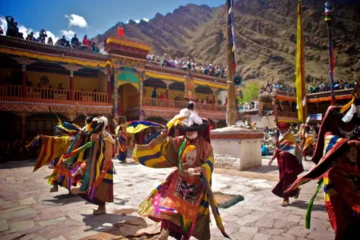The Markazi Jamia Masjid, a term that translates to “Central Grand Mosque,” is a prominent symbol of faith and community in many Islamic societies. These mosques often serve as centers for religious activities, education, and community gatherings. In this article, we will explore the significance of Markazi Jamia Masjids in the Muslim world and delve into the unique attributes that make these mosques so integral to the lives of believers.
Spiritual Center. A Markazi Jamia Masjid holds a central place in the spiritual life of a community. It is a place where Muslims come together for daily prayers, including the five obligatory ones, as well as special congregational prayers on Fridays and during Islamic festivals. The mosque’s prominent location often makes it easily accessible to residents, facilitating regular attendance.
Education and Learning. Many Markazi Jamia Masjids have attached madrasas (religious schools) or offer educational programs. These institutions play a vital role in teaching Islamic theology, jurisprudence, and Quranic studies. They help preserve and pass on the rich Islamic tradition to younger generations.
Community Hub. Beyond spiritual and educational functions, a Markazi Jamia Masjid serves as a hub for various community activities. It is a place where people gather for social events, discussions, and charitable work. The mosque often hosts lectures, seminars, and workshops on various topics, fostering a sense of unity and learning within the community.
Architectural Splendor. Markazi Jamia Masjids are known for their architectural splendor. They often feature stunning designs, intricate calligraphy, and impressive domes and minarets. These architectural elements serve both functional and aesthetic purposes, reflecting the grandeur of Islamic culture and faith.
Cultural Significance. These mosques carry deep cultural significance. They are often integral to the identity of a neighborhood or city. Their presence is a testament to the strong Islamic heritage and values shared by the community.
Interfaith Dialogue. Many Markazi Jamia Masjids engage in interfaith dialogue and community outreach programs. These initiatives promote understanding and harmony among people of different faiths, fostering a spirit of cooperation and coexistence.
Charitable Activities. Markazi Jamia Masjids often host charitable initiatives; including food drives, clothing distribution, and medical camps, demonstrating the Islamic principle of helping those in need. The mosque serves as a rallying point for the community to come together and support the less fortunate.
2
Global Significance. In addition to their local importance, some Markazi Jamia Masjids hold global significance. For example, the Grand Mosque in Mecca, Saudi Arabia, is one of the most iconic Markazi Jamia Masjids, drawing millions of pilgrims from around the world each year for the Hajj pilgrimage.
Preservation of Tradition. These mosques help preserve Islamic traditions and practices. By providing a dedicated space for congregational prayers and religious learning, they ensure that the essence of Islam is passed down through generations.
Markazi Jamia Masjids stand as more than just places of worship; they are vibrant centers of spirituality, education, culture, and community life. These mosques serve as spiritual anchors for Muslims and as bridges for interfaith dialogue and understanding. With their stunning architecture and profound cultural significance, Markazi Jamia Masjids are not only places of prayer but also symbols of unity, faith, and the enduring values of Islam. They continue to play a crucial role in shaping the spiritual and social fabric of communities around the world.
| Written By: Aditya Vansh Arya | |||||||


